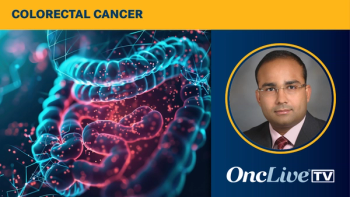
Dr. Brufsky on Challenges Facing Biosimilars in Breast Cancer
Adam M. Brufsky, MD, PhD, professor of medicine, associate chief, Division of Hematology/Oncology, co-director, Comprehensive Breast Cancer Center, associate director, Clinical Investigation, University of Pittsburgh, discusses challenges facing biosimilars for the treatment of patients with breast cancer.
Adam M. Brufsky, MD, PhD, professor of medicine, associate chief, Division of Hematology/Oncology, co-director, Comprehensive Breast Cancer Center, associate director, Clinical Investigation, University of Pittsburgh, discusses challenges facing biosimilars for the treatment of patients with breast cancer.
An issue with biosimilars is determining the reason for using them, explains Brufsky. One of the main benefits associated with biosimilars is the lower cost compared with other treatments. According to Brufsky, there would have to be cost differentials for physicians to want to use this treatment, as they already have experience with other regimens.
Currently, physicians have the most experience with Zarxio (filgrastim-sndz), which is a biosimilar for the G-CSF analog Neupogen (filgrastim). That has been a required treatment that has to be proven to show a cost benefit for the patient.



































